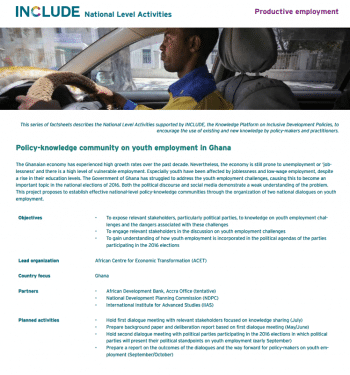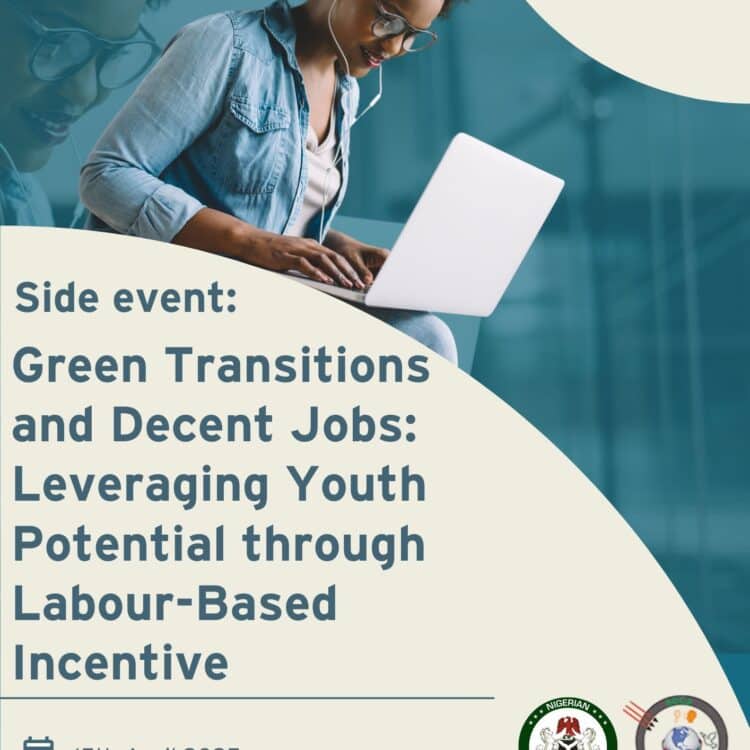
To encourage the use of existing knowledge in policy engagement in African countries and to facilitate the uptake of the findings of NWO-WOTRO & INCLUDE research projects at the national level or to fill gaps in INCLUDE’s knowledge agenda not covered by these projects, INCLUDE supports policy-knowledge communities that are initiated by Platform members and supported by INCLUDE.
The Ghanaian economy has experienced high growth rates over the past decade. Nevertheless, the economy is still prone to unemployment or ‘joblessness’ and there is a high level of vulnerable employment. Especially youth have been affected by joblessness and low-wage employment, despite a rise in their education levels. The Government of Ghana has struggled to address the youth employment challenges, causing this to become an important topic in the national elections of 2016. Both the political discourse and social media demonstrate a weak understanding of the problem. This project proposes to establish effective national-level policy-knowledge communities through the organization of two national dialogues on youth employment.




